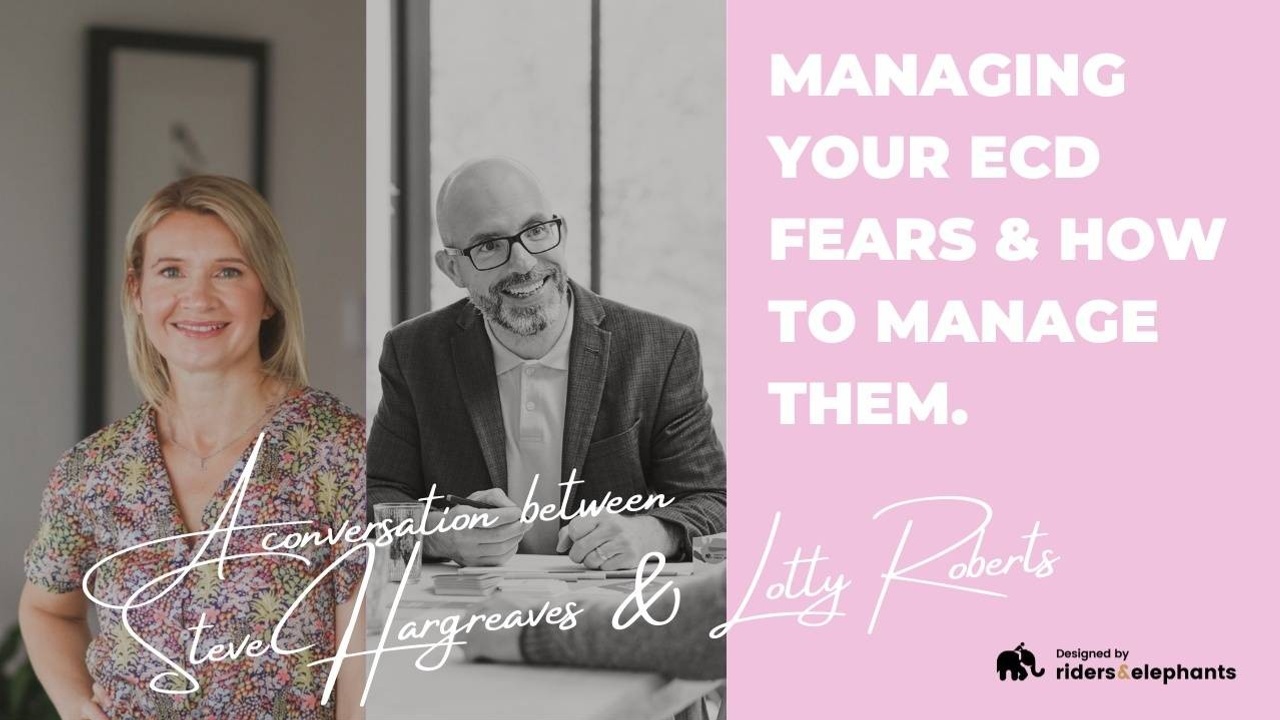Managing your ECD fears and how to overcome them (Listen)

This episode of the ECD Conversation Series with Steve & Lotty is all about fear. The fears and worries we have when using The ECD and facilitating ECD workshops.
Lotty and Steve discuss the things they feel fearful about when introducing and using the ECD in workshops and how can we manage these fears and regulate our responses to them.
They acknowledged that fears are normal, natural, powerful and a basic human emotion. Fear alerts us to the presence of danger or the threat of harm, whether that danger is physical or psychological and whilst fear can stem from real threats, it can also originate from imagined dangers that never come to pass.
The fears that might arise from using the ECD are highly unlikely to come to pass and knowing that is important so we can acknowledge our fears, walk alongside them for a while, and learn what they have to teach us, whilst at the same time ensuring they do not paralyse us and lead us astray.
Questions we explore in this conversation include:
- What are the things we might be fearful about?
- I am not Jeremy – will I do a good enough job
- Will people ‘get it’?
- How much information should I provide to people about the research?
- Will I over explain or under explain things?
- Will I overcomplicate the workshop and try to cram too much in?
- Will they like me?
- Will they think I am credible?
- Will people be too cognitive, rather than just ‘feel’?
- Am I pitching it right – do I know enough about the team I am facilitating?
- Will people feel safe enough to express some vulnerability? – what if people don’t feel safe enough?
- What if people get too emotional – what will I say and do? Will I say the right thing? How will I ‘control’ things
- What support will be available to them?
- Will people find their emotions too big to manage and handle? Will they experience an emotional ‘hangover’
- What if people don’t listen and show no empathy towards each other?
- What if there are sceptics amongst the group and people that just won’t engage in the session? How will I get them to participate?
- Will people keep the cards or mix them up – ahhhh – nightmare!
- Will the tables be big enough for everyone to lay out their cards?
Here are some tips for overcoming some of the fears Steve & Lotty discussed:
We can trust the process. Many thousands of ECD workshops have been undertaken by many different practitioners who have broadly followed the workshop process and used the various tools and resources available. It works!
Sceptics tend to come round once the game is being played and they experience the conversations and insights it leads to. For those people who may be hugely uncomfortable and resistant, the reality is that it might just not be the workshop for them or perhaps not the right time. This possibility could be covered by whoever is commissioning the workshop so that everyone’s expectations are managed.
Early contracting with the client can be really useful so that all eventualities can be discussed and expectations managed. This is also a great opportunity to gain some useful information on the dynamics of the team. It can be helpful to set out some ground rules at the beginning of the workshop e.g. it's important that people listen without judgement, and give colleagues room to reflect and articulate their thoughts and feelings
Show yourselves some compassion and don’t forget to breathe! You simply cannot control everything – you can curate, guide, prompt, encourage and facilitate but that’s all – try not to seek to control – we need to roll with things!
Sometimes people need silence and space in a workshop. You don't always need to fill the silence and space as a facilitator. The silence is not always negative. It can give people the space to reflect and consider and be thoughtful.
It's a good idea to not spend a great deal of time explaining the process or presenting the research – it helps to just help people to get stuck into the game and the process. Some pre workshop information can be helpful to explain broadly what the workshop is about and giving them access to one of the short videos can help set the scene really well.

